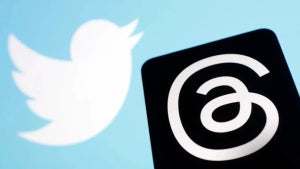At this year’s World Economic Forum in Davos, the only question that leaders are asking themselves while debating the future of generative AI is how could this technology change the future of employment.
The annual forum attracts thousands of attendees, including academics, companies, and government representatives to reflect on the most pressing global issues.
Given the potential of generative AI to disrupt economies, it’s no wonder that this technology is dominating many of this year’s discussions.
Sam Altman doesn’t believe there is much danger
It is not clear when AI will affect economies by changing employment models, but Sam Altman, CEO of OpenAI, does not believe that jobs are currently in danger. But of course, we are talking about the CEO of the world’s most important AI company.
“It is much more of a tool than I expected,” he said in a roundtable discussion in Davos. “It will improve, but it is not yet replacing jobs. It is an incredible tool for productivity. It is a tool that magnifies what humans do, allows people to do their job better, and lets AI do parts of the jobs.”
But the rest of the world looks at AI with suspicion
The consulting giant PwC surveyed 4,702 CEOs and found that 45% believe that the rise of AI means their business models may not survive in over ten years.
“55% believe that they don’t have to change radically, and I would say that is a bit naive because the world is changing very quickly around them,” explained Bob Moritz, global chairman of PwC.
Around 60 percent of respondents in the PWC survey stated that they expect generative AI to make their companies more efficient. Software capable of processing and automatically generating text and images will increase workers’ productivity, helping them respond to emails, analyze reports, and draft presentations more quickly.
Some predict that, as employees are forced to use these tools, their jobs will change, if not disappear. The International Monetary Fund predicted that almost 40% of global employment is exposed to AI and in the most developed countries, up to 60% of jobs may be affected by this technology.
“Historically, automation and information technology have tended to affect routine tasks, but one of the things that sets AI apart is its ability to impact highly skilled jobs. As a result, advanced economies face greater risks from AI compared to emerging and developing market economies,” explained the IMF.
Attendees are divided on the speed of AI progress and have questioned whether the technology is a force for good, considering how harmful it can be to people’s livelihoods.
However, Microsoft founder Bill Gates was more optimistic. He believes AI will change the workforce and make workers more efficient and productive, allowing them to work less. Hopefully you’re right, Bill.


